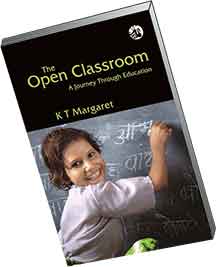Ramgopal K
Educational policy in the world in general and more specifically in our own country, in the last couple of decades, has increasingly undermined the teachers’ role, and worse still has betrayed a lack of faith in the school teacher and her potential to be a reflective and critical practitioner. Increasingly, the attempt at improving ‘educational quality’ (which itself is quite a slippery slope!), both in the public education system and the growing privatized/corporatized education space has been through more centralized control and micromanagement. The role for teachers has been reduced to mere unthinking transactors of a preconceived and handed-down curriculum, syllabus, content, and a highly reductionist evaluation towards which they are expected to teach. As Giroux points out,
“(Teachers) are objects of educational reforms that reduce them to a status of high level technicians carrying out dictates and objectives decided by experts far removed from the everyday realities of classroom life. The message appears that teachers do not count when it comes to critically examining the nature and process of educational reform.”*
In such an environment, it’s refreshing to see a reflective book written by a teacher – a self-critical appraisal of her journey as a teacher and her own views on fundamental aspects of education.
 K T Margaret, in The Open Classroom, while giving a reflective autobiographical account of more than three decades as a teacher and teacher educator, also presents her assimilated views, drawn from her experience on the nature and aims of education, the nature of the learner, and on some pedagogical practices.
K T Margaret, in The Open Classroom, while giving a reflective autobiographical account of more than three decades as a teacher and teacher educator, also presents her assimilated views, drawn from her experience on the nature and aims of education, the nature of the learner, and on some pedagogical practices.
Beginning her career as a teacher with a conventional high school, her wide ranging experience includes working as a nursery school teacher, running a learning centre for urban slum children, teaching in the educational program of an NGO engaged in rural developmental work and also doing a lot of teacher training. Taking us through these various phases, she narrates her engagement with various challenges she faces – challenges presented to her as much by external contexts and situations as questions that she herself faces from time to time about her own work. Her accounts reveal how much the role of a teacher is outside the classroom, as much if not more as it is inside. In understanding children’s home world, the social milieu that they live in, the larger social, economic, and cultural context within which the process of learning-teaching happens.
An important underlying theme of the narrative is the concern with the ‘inner self’ of the learner. Margaret dwells on the need to understand and provide a nurturing environment for the emotional and psychological growth of the learner. Her own understanding of these aspects seems to be informed quite strongly by Freudian thought. The chapter on understanding the child, especially, dwells a lot on understanding and responding to these aspects of a learner in particular. The portion on play is particularly interesting and relevant for practising teachers to get a sense of the importance of this seemingly aimless activity in contributing to the overall growth of a learner.
The book is not an academic or theoretical piece on education as the author herself insists; rather, it is a personal account of a teacher’s journey, written in a very easy-to-read, ‘write it as you say it’ style – making it readily accessible to non-specialists, practising school teachers and anybody else interested in children, education, and teachers. In some places, it may be seen as being a bit too simplistic – for example the characterization of alternative schools is rather generalized.
This book is certainly a much needed, important contribution to the genre of reflective writing by practising teachers, which is virtually non-existent in India. It is a good read for practising teachers, hopefully inspiring one to see teaching, specifically at the elementary level, as an intense, personally enriching experience with a transformatory potential and responsibility for oneself and for the learner. In an environment that paints and treats teachers as largely uncritical, specialized technicians, the book presents an experience where the nature of exchange between the teacher and the taught has been an active evolving one, that influences the teacher as much as the taught.
I conclude with these words from the author:
“Over the years, I have found that when I become willing to face both myself and the realities of the outer world, a positive change occurs within me – an evolution which I believe is ‘education’ in the true sense of the term. In order to be educated and to help in the education of others, we must ourselves become that which we conceptualize as the goal of education.”
_________________________________________________________
*Giroux, Teachers as transformatory intellectuals
The reviewer is a teacher with Centre for Learning, Secunderabad. He can be reached at knramgopal@yahoo.com.
